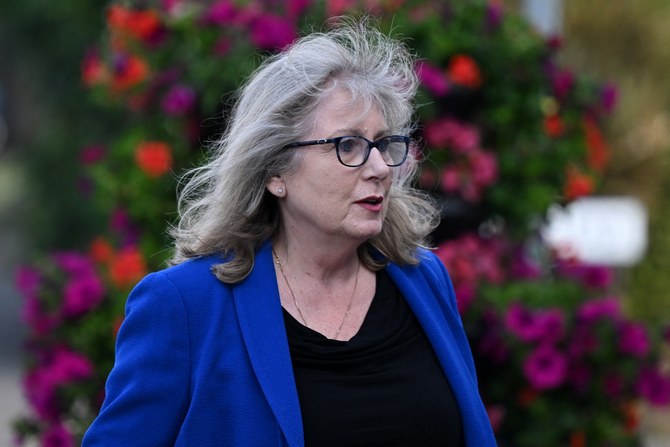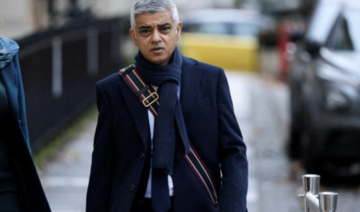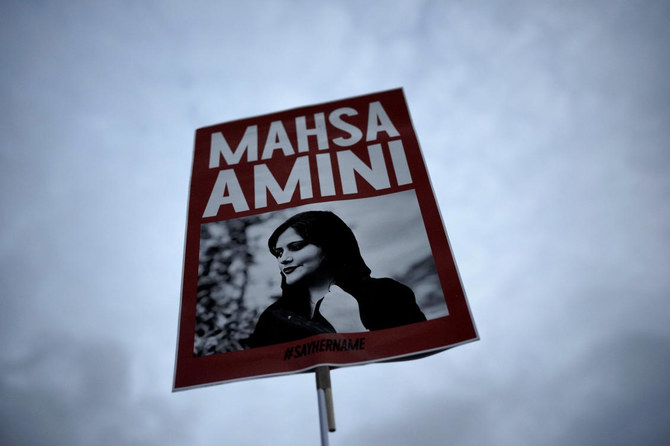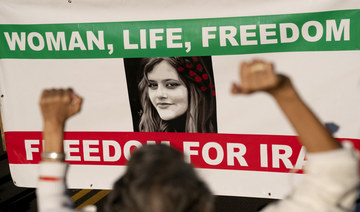DUBAI: Ramadan is a month of abstinence for many Muslims around the world as they fast through the day and embrace spirituality, charity and generosity. It is also one of the busiest shopping periods, especially in the MENA region, with online consumer spending valued at $6.2 billion this year, according to Statista. That figure is a 39 percent increase in online spending compared to last year.
With many consumers spending more time looking for entertainment and helpful content, such as cooking tips or spiritual guides, social media usage often increases during Ramadan. A survey by advertising platform AdColony and research company GlobalWebIndex found that 50 percent of respondents in Saudi Arabia spend one to three hours on their smartphones per day.
During Ramadan, most Saudi consumers use smartphones over other devices to shop online (65 percent), browse through social media apps (64 percent) and message family and friends (61 percent).
Arab News spoke to senior leaders from Meta, Twitter, TikTok, Snap and Google to learn more about Ramadan advertising.
FARES AKKAD, REGIONAL DIRECTOR FOR MENA, META

What were the top trends during Ramadan last year?
Last year, we saw how many advertisers embraced a mobile-first strategy rather than just building for TV and then adapting or optimizing for all the other mediums later. We also saw a lot of brands do various augmented reality filters, Messenger Bots and mobile video ads that were not only innovative, but also impactful, too.
What are the top Ramadan trends this year?
With people’s openness to new things during Ramadan, discoveries are taking place across borders. Studies show that 69 percent of Ramadan shoppers get “excited about trying new brands and products from abroad” and nearly one in two Ramadan shoppers globally (47 percent) made at least one cross-border purchase.
The leading MENA streaming platform, Shahid VIP, wanted to reach a global audience with Ramadan-specific content. They leveraged mobile-first short-form videos on Facebook and Instagram to drive an uplift in subscriptions across the US and Canada, resulting in a 3.9 percent lift in action intent, 8.2 percent lift in sign-ups and 8.4 percent lift in brand awareness.
We are also seeing many campaigns utilizing content creators in interesting ways; creators often play a particularly important role during this period. These diverse voices drive greater levels of representation, with as many as 46 percent of shoppers using Meta technologies during Ramadan to watch live videos by creators.
How did the resurgence from the pandemic affect Ramadan advertising?
As we slowly emerge out of the COVID-19 pandemic, advertisers and marketers are steadily coming back on their feet. In 2020 and 2021, there was a lot of uncertainty and confusion; however, now we are seeing everyone getting used to the new normal.
With Ramadan being an annual festival, how can brands avoid becoming repetitive?
The spirit of Ramadan will never change, but technology does, and people’s needs do, too. Just like how the pandemic created a space for ideas that bring people closer together in times of physical distancing, something else will come along and brands will have to pivot and focus on what brings value to people.
The metaverse is not just a buzzword. While realizing this future might take five to 10 years and all of us working together, there are steps that we can take today to start planning for the future. It is important to continue to grow a brand and business in the digital space on our 2D apps — this will help brands imagine the opportunities and prepare them for the metaverse of tomorrow.
Lastly, brands can stay relevant by creating more interactive and immersive content, leveraging new AI capabilities and forging stronger audience relationships. The future is bright for the next era of creating.
ANTOINE CAIRONI, HEAD OF REVENUE — MENA, TWITTER

What were the top trends during Ramadan last year?
In a pre-Ramadan survey of Twitter users in the region (KSA, UAE and Egypt), 60 percent said that Twitter was their go-to platform to discover what is happening during the holy month. Their most sought-after content included entertainment, comedy, food and cooking, as well as health and wellness.
Despite the context of the pandemic, the general popular themes of Ramadan remained prevalent. Video continued to be a leading form of content consumption for people and video as an ad format performed strongly on the platform. A 2021 research study found that people on Twitter in the Kingdom and the UAE reinforced the increase in usage of video as a format for content discovery.
Watching videos during Ramadan remains within the top three activities on the platform.
What are the top Ramadan trends this year?
About 50 percent of people on Twitter in Saudi, UAE and Kuwait, and 60 percent of users in Egypt, spend more money during Ramadan. A significant amount of people are likely to explore new brands and products (41 percent in Saudi Arabia, 53 percent in the UAE, 42 percent in Egypt and 40 percent in Kuwait).
We also found that Twitter goes hand in hand with television in a multi-screen effect during Ramadan. People use the platform while watching TV to read about what others are watching, discover new shows and share their own opinions. People move from simply watching TV to sharing moments and emotions around the content that matters to them during the holy month.
Once again, video remains a prevalent form of content consumption for people on Twitter and continues to be one of the best ways to reach people and tell a story in a very meaningful way.
In addition, time spent on gaming increases during Ramadan, as 39 percent of people interested in gaming spend 35 percent more time on the activity during Ramadan.
How did the resurgence from the pandemic impact Ramadan advertising?
Ramadan advertising spend is prioritized by most organizations as it is a critical time for marketing in the region, but it has remained consistent with a focus on growing a brand’s Twitter presence throughout the pandemic.
In the region, restrictions have been gradually lifted since 2021, so from a creative content perspective, we are seeing a rise in advertising campaigns that show more examples of life as we knew it pre-pandemic.
Brands that do well on Twitter in terms of high viewership and engagement focus on ways to emotionally connect with target audiences during the month and aim to inspire, rather than focus on promotional tactics.
With Ramadan being an annual festival, how can brands avoid becoming repetitive?
It really comes down to how creative brands are willing to get with content, and how they connect with audiences in a memorable and emotional way. Most brands in our region prioritize Ramadan marketing campaigns, cluttering the online space. So, from a consumer perspective, the content from many brands might appear to have a lot of similar themes.
However, we have found that our audience is extremely receptive to brands that use Twitter for a new launch during Ramadan. People are two times more likely to talk about a brand within their own connections and their circle of friends and family, which makes them influential too.
FAHAD AL-MAGHRABI, HEAD OF BUSINESS PARTNERSHIPS — GLOBAL BUSINESS SOLUTIONS KSA, TIKTOK

What were the top trends during Ramadan last year?
About 74 percent of TikTok users focused on community activities related to Ramadan and 57 percent spent more time with family and friends.
Digital consumption patterns varied during the month, with users moving more towards watching content than creating it, and consumption increasing after iftar until midnight.
During Ramadan last year, people browsed more content than expected related to beauty (23 percent), fashion (23 percent), food and cooking (23 percent), sports (15 percent) and home decor (14 percent).
Video views grew by 21 percent and engagement increased by 22 percent. The entertainment category alone grew by 70 percent, creating an opportunity for brands to engage with a community that is seeking joyful distractions.
When it comes to shopping, preparations for Ramadan start in the weeks before the month. Consumers, who are seasonal shoppers, tend to buy more. But most importantly, they do that together. This community consumption trend is reflected in the high traction on the platform.
What are the top Ramadan trends this year?
There are specific seasonal spikes when people tend to buy more, and this is in the two weeks leading up to Ramadan and the two weeks before Eid, which is reflected on the platform.
This year, our overarching message for brands during Ramadan is encompassed in “Ramadan Uninterrupted.” Essentially, we want brands to understand the importance of being part of the community during this period, rather than disrupting it.
How did the resurgence from the pandemic affect Ramadan advertising?
Today, consumers are spending more time online than ever before and there has been an uptick in online shopping. Following the outbreak of the COVID-19 pandemic, we have witnessed unprecedented growth in people shopping online worldwide and in digital consumption. This is particularly relevant during key seasonal occasions such as Ramadan.
Advertisers are seeing greater benefit in investing in this key retail moment and using it not just to sell products and services, but also to connect with their audience on a deeper level and encourage longer-term brand loyalty. This is where TikTok’s Community Commerce model comes in, which is quickly helping retailers grow and go viral.
With Ramadan being an annual festival, how can brands avoid becoming repetitive?
This year, like any other, TikTok is the destination for people to share during Ramadan in the form of short videos. And when they do so, they do not want ads or disruption — they want content that seamlessly blends into their edutainment time.
Keeping the values of Ramadan in mind, brands must bring content that is familiar and relatable to the audience, which helps them gain affinity and advocacy. In fact, 61 percent of TikTok users perceive brands as part of the open community and 84 percent of users say they come across content they can relate to on TikTok.
Ramadan is also known to be the month of inspiration and discovery, whereby 46 percent of MENAT digital users discover new tips, skills and content during Ramadan.
One approach is to explore the wide pool of creators who have built their own community and deliver their messages in an authentic and distinguished way. Creators do not just reach customers; they connect with them on a deeper level. Many brands cannot compete with creators’ storytelling abilities.
Additionally, today, the size of an influencer’s following is one of their least valuable assets. Brands have realized a big following does not equal big success. Micro-influencers have become so popular, as they have much more engaged followings, and so recommendations are more trusted.
ABDULLA AL-HAMMADI, REGIONAL BUSINESS LEAD, SNAP INC.

What were the top trends during Ramadan last year?
It is no surprise that the past few Ramadans were celebrated a little bit differently in the context of the pandemic. Embracing personal contemplation, purposefulness and even nostalgia, many people connected and celebrated virtually. Adapting to the changing times, behavior shifted, and new experiences came to life that bridged the digital and physical worlds.
During Ramadan 2021, Snapchatters opened the Snap Map in MENA 82 percent more often compared to Ramadan 2020. More than 1 billion Snaps were posted to Stories, and users in the Kingdom viewed AR Lenses more than 90 billion times.
Ramadan content continued to grow with users spending 33 percent more time on Ramadan content in 2021 than in the previous year.
What are the top Ramadan trends this year?
This year, communities across the MENA region are returning to togetherness. About 46 percent say that they plan to take part in more celebratory activities this year, and about 42 percent were actually planning to seek inspiration for Ramadan celebrations three weeks or earlier before Ramadan began.
We also found that 65 percent of our community will look to social and video apps for inspiration this Ramadan.
How did the resurgence from the pandemic affect Ramadan advertising?
We believe that media effectiveness, audience segmentation, authentic communication, and the ability to bridge the digital and physical worlds are essential considerations in planning 2022 Ramadan campaigns.
Digital platforms that help close friends and family stay connected, informed and express themselves are clearly influencing purchasing decisions. Technologies like AR have become an innovative way to have fun, create new traditions and connect.
With Ramadan being an annual festival, how can brands avoid becoming repetitive?
Communities have adapted to the changes of recent years, and their behaviors have evolved. Brands need to adapt to these preferences also. They must make sure they reach their audience at scale through immersive and impactful experiences across the entire consumer journey.
To achieve this, brands should be open to experimenting with new and creative technologies such as AR, providing consumers with an immersive experience that resonates with them, entertains them and informs them. Most importantly, brands should invest in innovative ways that can actually make a difference in consumer lives, while also tapping into their emotional and pleasurable aspects.
SOUHEIL SOUEID, HEAD OF ADVERTISING PRODUCTS & SOLUTIONS, GOOGLE MENA
What were the top trends during Ramadan last year?
In the last two years, it is obvious that many of our offline habits have moved to being online.
The top three trends of last year were:
1. The core values of Ramadan remain the same. On the first day of Ramadan last year, there were 17.5 million Qur’an livestream views on YouTube in MENA, and we saw a 100 percent increase in YouTube search interest for “donations” and “charitable giving” in Saudi Arabia during the four weeks of Ramadan in 2021 versus all other months of the year.
2. Optimism is rising and people are seeking a mood lift. Google Trends shows that searches around mental health increased during Ramadan last year with a 190 percent year-on-year increase in search interest for “psychological comfort” in the UAE.
3. Ads bring nostalgia to people in the MENA region, which is reflected in the fact that about 75 percent of the top-watched YouTube videos in the UAE, Saudi Arabia and Egypt were ads.
What are the top Ramadan trends this year?
We will wait to get the full analysis before sharing those findings with you.
How did the resurgence from the pandemic affect Ramadan advertising?
The pandemic has truly brought a level of uncertainty to businesses globally. This lack of clarity on what is next has added even more pressure on brands to drive concrete results.
Marketers and decision-makers at senior levels expect more transparency across all marketing channels. This is why we are seeing brands focusing more on full-funnel solutions to help them achieve their business objectives.
In this context, transparent and rigorous measurement becomes critical for brands to assess results and action timely decisions.
With Ramadan being an annual festival, how can brands avoid becoming repetitive?
The core of Ramadan remains the same, but people’s behaviors are changing with time. Therefore, it is imperative for brands to understand timely trends to adapt their communication and engage with people in a meaningful way.
It is critical for brands to leverage their first-party data in a privacy-centric way to help them adjust their media strategy, as well as guide their narrative and creative approach.
It is also important for brands to explore new formats and be present where their consumers are. As an example, YouTube Shorts hit more than 5 trillion views in its first year. With this new offering, brands are reviewing their content strategy to take part in this new online experience by creating video content and ads that are adapted for a vertical viewing experience.



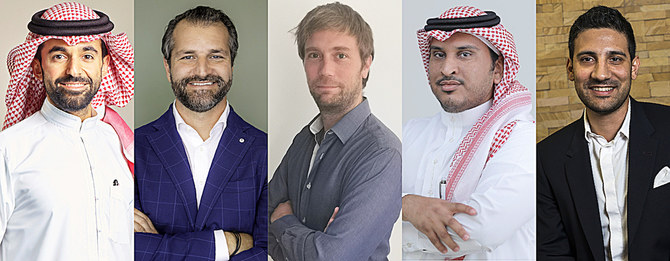
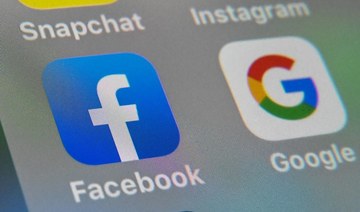
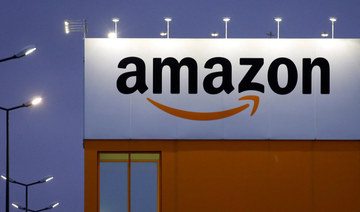


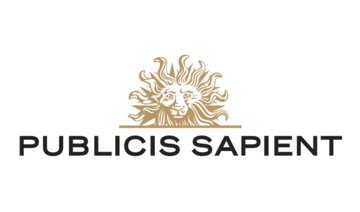


 Based in the company’s Riyadh office, Al-Shathri will be responsible for accelerating business growth in Saudi Arabia and building the operational business and community.
Based in the company’s Riyadh office, Al-Shathri will be responsible for accelerating business growth in Saudi Arabia and building the operational business and community.
